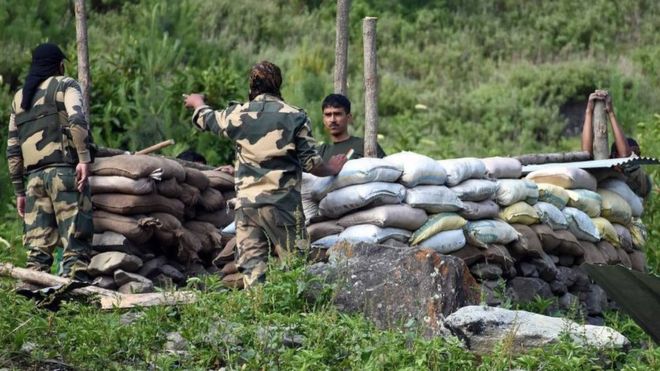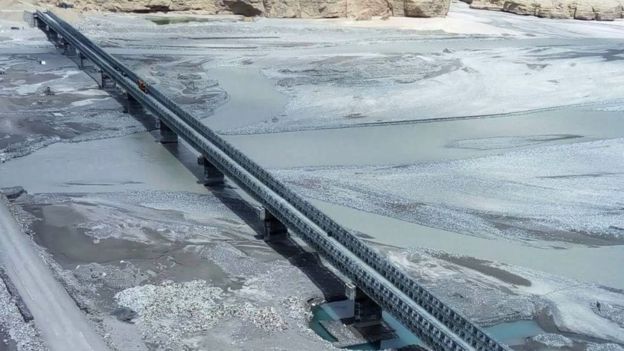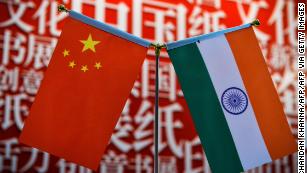DESIBUZZCanada
Events Listings
Dummy Post

International Day Of Yoga To Be Virtually Celebrated Saturday At 4pm

CANCELLED: Coronavirus Fears Kills Surrey’s Vaisakhi Day Parade

ADVERTISE WITH US: DESIBUZZCanada Is The Most Read South Asian Publication Online

SURREY LIBRARIES: Get Technology Help At Surrey Libraries

WALLY OPPAL: Surrey Police Transition Update On Feb. 26

GONE ARE THE DAYS - Feature Documentary Trailer

Technology Help At Surrey Libraries

Birding Walks

Plea Poetry/short Story : Youth Contest

International Folk Dancing Drop-in Sessions
Chinese Forces Kill 20 Indian Troops At Ladakh Border Fighting
- June 16, 2020


The Indian army initially said three of its soldiers had been killed, adding that both sides suffered casualties, reported BBC News. But later on Tuesday, officials said a number of critically injured soldiers had died of their wounds.
LADAKH - At least 20 Indian soldiers were killed in a clash with Chinese forces in a disputed Himalayan border area, Indian officials said.
The incident follows rising tensions, and is the first deadly clash in the border area in at least 45 years.
The Indian army initially said three of its soldiers had been killed, adding that both sides suffered casualties, reported BBC News.
But later on Tuesday, officials said a number of critically injured soldiers had died of their wounds.

India's external affairs ministry accused China of breaking an agreement struck the previous week to respect the Line of Actual Control (LAC) in the Galwan Valley.
BBC diplomatic correspondent James Robbins says violence between two armies high up in the Himalayas is very serious, and pressure will grow on the two nuclear powers not to allow a slide into full-scale conflict.
Early on Tuesday the Indian army said three of its soldiers, including an officer, had died in a clash in Ladakh, in the disputed Kashmir region.
Later in the day, it released a statement saying the two sides had disengaged.
It added that "17 Indian troops who were critically injured in the line of duty" and died from their injuries, taking the "total that were killed in action to 20".
China did not confirm any casualties, but accused India in turn of crossing the border onto the Chinese side.
Chinese foreign ministry spokesman Zhao Lijian said India had crossed the border twice on Monday, "provoking and attacking Chinese personnel, resulting in serious physical confrontation between border forces on the two sides", AFP news agency reported.
Both sides insist no bullet has been fired in four decades, and the Indian army said on Tuesday that "no shots were fired" in this latest skirmish.
How a clash that did not involve an exchange of fire could prove so lethal is unclear. There are reports that it was fought with rocks and clubs
Local media outlets reported that the Indian soldiers had been "beaten to death".

The LAC is poorly demarcated. The presence of rivers, lakes and snowcaps means the line can shift. The soldiers either side - representing two of the world's largest armies - come face to face at many points.
But there have been tense confrontations along the border in recent weeks.
India has accused China of sending thousands of troops into Ladakh's Galwan valley and says China occupies 38,000sq km (14,700sq miles) of its territory. Several rounds of talks in the last three decades have failed to resolve the boundary disputes.
The two countries have fought only one war so far, in 1962, when India suffered a humiliating defeat.
In May, dozens of Indian and Chinese soldiers exchanged physical blows on the border in the north-eastern state of Sikkim. And in 2017, the two countries clashed in the region after China tried to extend a border road through a disputed plateau.
There are several reasons why tensions are rising now - but competing strategic goals lie at the root, and both sides blame each other.
India has built a new road in what experts say is the most remote and vulnerable area along the LAC in Ladakh. And India's decision to ramp up infrastructure seems to have infuriated Beijing.

The road could boost Delhi's capability to move men and materiel rapidly in case of a conflict.
India also disputes part of Kashmir - an ethnically diverse Himalayan region covering about 140,000sq km - with Pakistan.
The two nuclear armed neighbours have a chequered history of face-offs and overlapping territorial claims along the more than 3,440km (2,100 mile), poorly drawn Line of Actual Control separating the two sides.
Border patrols have often bumped into each other, resulting in occasional scuffles. But no bullets have been fired in four decades.
That is why Sunday's night's clash following months of roiling tension has taken many by surprise.
Whatever the result, the latest incident is likely to trigger a fresh wave of anti-China sentiments in India.
It will also present daunting foreign policy and security challenges to Indian Prime Minister Narendra Modi and his government, which is struggling to contain a surge of Covid-19 infections and revive an economy which looks headed for recession.
Courtesy BBC News












